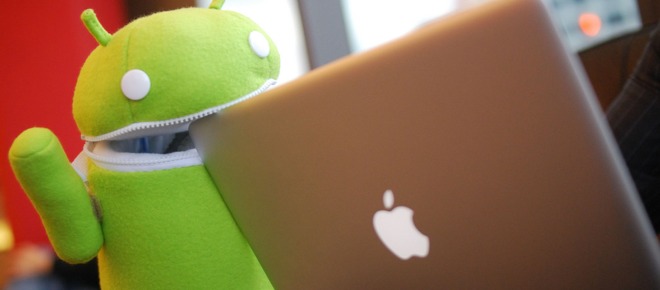Is Googorola anti-competitive? Not at all.
But Google isn’t doing its hardware partners any favours with the move
Share

Google kicked this week off with a bang with a surprise announcement that it was acquiring cellphone maker Motorola for $12.5 billion, a huge move that will boost the search engine company’s employee headcount by 60%. As Google CEO Larry Page explained in a blog post, it’s a defensive move to acquire patents, a particular problem area for the company that I wrote about earlier.
Patent issues aside, one of the other main aspects many have focused on is that the deal is likely to alienate Google’s other mobile partners. HTC, Samsung, Sony Ericsson and a few others who use Google’s free Android operating system will now find themselves competing directly against the maker of that software. Some are even speculating that the acquisition could become an antitrust issue.
In the case of Google alienating its partners, most pundits have suggested this to be a bad thing. In fact, perhaps it’s something that’s overdue.
Going back to the B.I. era (Before iPhone), the nascent smartphone market belonged to Nokia, Research In Motion and Microsoft, in that order. Four years later, the market is dominated by Android, Apple and RIM, again in that order. If Samsung, Sony Ericsson and Motorola were anywhere in that pre-iPhone mix, it was thanks to the Windows phones they were making. HTC, meanwhile, didn’t even have its own name—it was busy making hardware for other companies, who slapped their own brands on it.
If it weren’t for Android, it’s likely these companies wouldn’t have any piece of today’s smartphone market. Google came along and gave them a free operating system, which liberated them from paying big licensing dollars to Microsoft, and built the only app market besides Apple’s that matters. Samsung, HTC and the rest have literally gotten a free ride.
The result is that Android phones are the market leader, while Android tablets are also making some headway against Apple. The other result, however, is that all the Android devices are the same. Is an HTC Android phone really different from a Motorola Android phone? Nope. They’re pretty much interchangeable.
Google also benefited in a big way from its partners, who helped build Android’s critical mass. But now, because of the unsavoury patent situation Google finds itself in, the search company is being forced to look out for number one. When it comes to war, sometimes you have to leave your allies behind in order to survive, or else they’ll do it to you. That’s pretty much what happened to Microsoft in the mobile realm.
Google says it will continue to freely license Android to Samsung et al., but if Apple and RIM (to some extent) have shown the world anything, good things happen when one company builds its own hardware and software. Competing with an integrated Google in building Android phones is therefore going to be tough for its former partners. The free ride for Android makers is therefore over.
But that’s not an antitrust issue. Samsung, HTC and the rest have plenty of options available. They can keep making Android devices, an option that would force them to put their thinking caps on and create better gadgets than Google itself. They can license the Windows operating system from Microsoft or they can talk to HP about using webOS, something that company is apparently interested in doing. Or, in the unlikeliest of scenarios, they can create their own, hopefully better OS. Simply put, there’s nothing forcing them to use Android, which would probably be a condition for antitrust.
Has Google stabbed its partners in the back? Absolutely, albeit by necessity. But is Google being anti-competitive? It’s hard to see how.